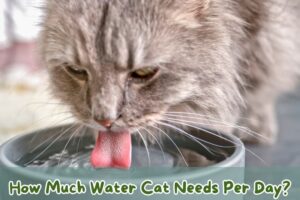Cat vaccinations demystified! Dive into this must-read guide for cat owners, discovering the key to your feline friend’s long and healthy life. From vaccine types to schedules, we’ve got you covered!
Why should you get your feline cat vaccinations?
Vaccinating your feline cat is essential for several reasons:
- Disease Prevention: Vaccination of cat protects your cat from various infectious diseases that can be severe or even fatal. Common vaccines for cats target diseases such as feline panleukopenia (FPV), feline herpesvirus (FHV), feline calicivirus (FCV), and rabies.
- Community Health: Vaccinating your cat also contributes to community health by preventing the spread of contagious diseases. This is particularly important in multi-cat households, catteries, and areas with a high density of cats.
- Long-Term Cost Savings: Preventing diseases through vaccination is often more cost-effective than treating illnesses. Veterinary bills, medications, and potential loss of income due to caring for a sick pet can add up quickly.
- Legal Requirements: In many places, rabies vaccination of cat is required by law. Keeping your cat up-to-date on vaccinations ensures compliance with local regulations and helps protect public health.
- Protecting Other Pets: Some diseases can be transmitted between different animal species. By vaccinating your cat, you not only protect them but also prevent them from becoming carriers of diseases that could affect other pets.
- Peace of Mind: Knowing that your cat is protected against preventable diseases provides peace of mind for pet owners. It allows you to enjoy a stronger bond with your pet without the constant worry of them falling seriously ill.
- Avoidance of Zoonotic Diseases: Some diseases that affect cats can also be transmitted to humans (zoonotic diseases). By vaccinating your cat, you reduce the risk of these diseases spreading to your family.
- Travel Requirements: If you plan to travel with your cat, especially across borders, cat vaccinations may be required. Many airlines and countries have specific vaccination requirements for pets to ensure they are not carriers of infectious diseases.

Why should you get your feline cat vaccinations?
4 main compulsory cat vaccinations that your cat requires
These four vaccines are essential for protecting cats from some of the most common and dangerous diseases.
Rabies vaccine
Rabies is a fatal viral disease that can affect all mammals, including cats. It is transmitted through the bite of an infected animal, and it causes inflammation of the brain and spinal cord. Rabies is almost always fatal, but it can be prevented with vaccination.
Kittens should receive their first rabies vaccine at 12 weeks of age, and then they should receive booster shots every year.
Feline panleukopenia virus (FPLV) vaccine
FPLV is a highly contagious virus that causes severe diarrhea, vomiting, and lethargy. It can be fatal, especially in kittens. FPLV is spread through contact with the feces, urine, or saliva of an infected cat.
Kittens should receive their first FPLV vaccine at 6-8 weeks of age, and then they should receive booster shots every 3-4 weeks until they are 16 weeks old. Adult cats should receive booster shots every year.
Feline viral rhinotracheitis (FVR) vaccine
FVR is a respiratory virus that causes sneezing, coughing, and runny nose. It can also lead to pneumonia. FVR is spread through contact with the respiratory secretions of an infected cat.
Kittens should receive their first FVR vaccine at 6-8 weeks of age, and then they should receive booster shots every 3-4 weeks until they are 16 weeks old. Adult cats should receive booster shots every year.
Feline herpesvirus-1 (FHV-1) vaccine
FHV-1 is a virus that causes upper respiratory infections in cats. It is a common virus, and most cats will be exposed to it at some point in their lives. FHV-1 can cause sneezing, coughing, and runny nose. It can also lead to conjunctivitis (inflammation of the eye).
Kittens should receive their first FHV-1 vaccine at 6-8 weeks of age, and then they should receive booster shots every 3-4 weeks until they are 16 weeks old. Adult cats should receive booster shots every year.

4 main compulsory cat vaccinations that your cat requires
The annual schedule of cat vaccinations
Here’s a table summarizing the annual cat vaccination schedule:
|
Vaccine |
Age at First Vaccination |
Booster Schedule |
| Rabies |
12 weeks old |
Every year |
| Feline panleukopenia virus (FPLV) |
6-8 weeks old |
Every 3-4 weeks until 16 weeks old, then every year |
| Feline viral rhinotracheitis (FVR) |
6-8 weeks old |
Every 3-4 weeks until 16 weeks old, then every year |
| Feline herpesvirus-1 (FHV-1) |
6-8 weeks old |
Every 3-4 weeks until 16 weeks old, then every year |
Here is a more detailed breakdown of the vaccination schedule:
- Kittens should receive their first vaccinations at 6-8 weeks of age. They will then need a series of booster shots every 3-4 weeks until they are 16 weeks old. Once they are 16 weeks old, they will need annual booster shots.
- Adult cats should receive annual booster shots for all four vaccines.
Here are some additional things to keep in mind:
- Kittens should be vaccinated at least two weeks before they are introduced to other cats.
- Pregnant cats should not be vaccinated.
- Cats that are sick should not be vaccinated until they have recovered.

The annual schedule of cat vaccinations
Cat vaccination side effects you must know
Vaccination side effects in cats are typically mild and short-lived. The most common side effects include:
- Mild soreness at the injection site: This is the most common side effect and usually goes away within a day or two.
- Fever: Fever is also a common side effect and usually goes away within a few days.
- Lethargy: Your cat may be more lethargic than usual for a day or two after the vaccine.
- Loss of appetite: Your cat skips meals as much as usual for a day or two after vaccinations.
- Vomiting: Vomiting is a less common side effect, but it can occur in some cats.
- Diarrhea: Diarrhea is a less common side effect, but it can occur in some cats.
These side effects are usually not a cause for concern and will go away on their own. However, if your cat’s side effects are severe or do not go away within a few days, you should contact your veterinarian.





